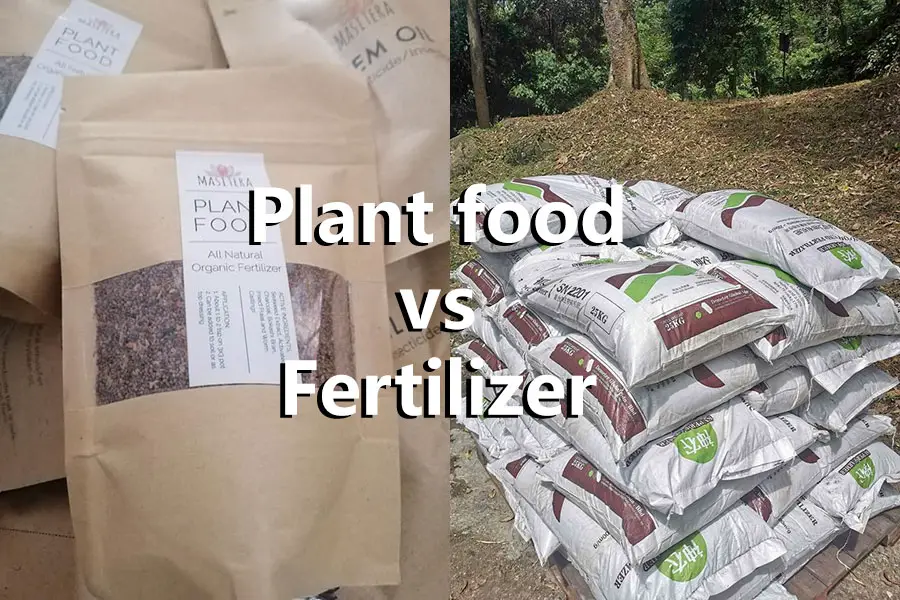
```html
# Is Plant Food the Same as Fertilizer? Discover the Truth
Ever wondered if plant food and fertilizer are just different names for the same thing? It's a common question among gardeners and plant enthusiasts. Let's dive into the world of soil nutrition and plant growth to uncover the truth.
## Understanding the Basics
To get started, let's clarify the terms. Is plant food the same as fertilizer? The short answer is no. While both are crucial for plant health, they serve different purposes and come in various forms.
### What is Plant Food?
Imagine plant food as the primary meals your plants need to thrive. It includes organic nutrients and essential minerals that support plant growth. This can come from natural sources like compost, manure, or specialized liquid solutions designed to mimic natural feeding processes.
For instance, think of plant food as nourishment for your household pet. While pet food provides balanced nutrition, it often includes treats that pets love but don't necessarily need every day. Similarly, plant food can be thought of as treats for your plants, supporting overall health and vigor.
### What is Fertilizer?
Fertilizer, on the other hand, is more like a specialized supplement. It provides specific nutrients to address deficiencies in soil nutrition. Fertilizer types can range from synthetic, chemical-based products to organic and natural substances. Each type offers unique benefits.
Pictured in the same light, fertilizers are like vitamins we humans take to address specific nutritional deficiencies. Just as you might take a vitamin D supplement for stronger bones, fertilizer can correct particular soil nutrient imbalances, aiding in robust plant growth.
## The Nuances of Fertilizer Types
Because fertilizers can be so specific, it's important to understand the differences. Let's break down some common fertilizer types and their uses:
### Organic Fertilizers
Organic fertilizers are derived from naturally occurring materials like compost, manure, and bone meal. They provide a slower, more sustained release of nutrients, making them a great long-term investment for soil health. Stock up on your compost and experiment with your own organic nutrients.
### Synthetic Fertilizers
Synthetic fertilizers are chemically engineered to deliver specific amounts of nutrients quickly. While they can boost plant growth in the short term, they often lack the nurturing qualities of organic fertilizers. Use them sparingly and consider how they might impact soil health over time.
## Gardening Tips for Optimal Plant Nutrition
So, how do you ensure your plants get the best of both worlds? Here are some practical gardening tips to help you balance plant food and fertilizers for optimal results:
### Test Your Soil
Before you start, test your soil to understand its nutrient profile. This will guide you in deciding whether to use plant food or fertilizer. You can find soil testing kits online or through local gardening services.
### Rotate Fertilizers
To maintain balanced soil nutrition, rotate between organic and synthetic fertilizers. This ensures that your plants get a steady supply of nutrients without over-reliance on any single type. Remember, diversity can be key to long-term success in gardening.
### Use Compost Wisely
Compost is a fantastic source of organic nutrients. Blend it into your soil to improve its structure and nutrient content. Bear in mind that composting can be a bit of an art, but mastering it can reward you with nutrient-rich compost for your plants.
### Follow Fertilizer Guidelines
Always follow the manufacturer's guidelines on fertilizer application rates. Over-fertilizing can harm your plants and disrupt soil health. Less is often more when it comes to fertilizing.
## Conclusion
So, is plant food the same as fertilizer? Now you know the answer is a clear no. Both are essential for healthy plant growth, but they serve different roles. Plant food provides a varied diet of organic nutrients, while fertilizers address specific soil deficiencies. By understanding and utilizing both appropriately, you can ensure your plants thrive.
Don't stop here! Dive deeper into the world of gardening and plant care. Click here to explore more tips and tricks for a lush, thriving garden.
### FAQs
#### 1. Can I use plant food as a fertilizer?
While plant food can provide some nutrients, it may not address specific deficiencies that synthetic fertilizers can. It's best to use them in conjunction with fertilizers for optimal soil health.
#### 2. How often should I use fertilizer in my garden?
The frequency of fertilizer use depends on the type of plants and the soil conditions. As a general rule, apply synthetic fertilizers every 4-6 weeks during the growing season and organic fertilizers every 3-4 months.
#### 3. What is the best type of fertilizer for indoor plants?
Indoor plants often benefit from slow-release, balanced fertilizers. Liquid fertilizers can also be an excellent choice for quick nutrient delivery.
#### 4. Can I make my own plant food?
Yes, you can make your own plant food using compost, manure, or other organic materials. This can be an economical and eco-friendly way to support soil nutrition.
#### 5. How do I know if my plant needs fertilizer?
Observe your plants for signs of nutrient deficiencies such as yellowing leaves, stunted growth, or poor flowering. Regular soil testing can also help you determine if additional nutrients are needed.
```


0 Response to " Is Plant Food Same As Fertilizer? Discover the Truth"
Post a Comment